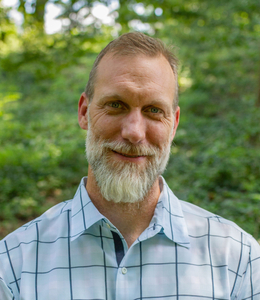Transcript
The best place to start here is just to ask the question, what is complex PTSD? What does somebody mean when they use that term? Complex PTSD is, the best way to think about it is it's a really significant category of suffering, a category of suffering that has profound effects on a person. And the term is attempting to capture compounded traumas, suffering upon suffering. And often that occurs in childhood while someone is in the process of developing as a human being. It could be anything from emotional neglect to a chaotic living environment or even inappropriate relational dynamics and expectations. So there's many things that can cause this, but it's just important to know that this is a type of suffering that fractures a person's life and it continually haunts them. So then what is someone supposed to do if this is a part of their life experience? And let me answer that by highlighting what I see the people of Israel doing with their profound suffering and trauma.
I see Scripture speaking to complex trauma and even trauma recovery in Psalms 129, 130, and 131. And while these three psalms don't constitute, let's say a manual or a treatment protocol, they do offer a framework in which to think about what it means for us to pursue recovery and wholeness as people. And think about this: because the Psalms were a regular part of Israel's religious and communal life, all of Israel is invited to participate in this type of trauma work as they encounter this series of psalms, as they walk through Psalm 129 and 130 and 131. They participate in this work. Let me walk through each of these psalms just to highlight what they do and where they take a person.
So Psalm 129. A portion of this reads, “’Greatly, have they afflicted me from my youth’—let Israel now say—‘Greatly have they afflicted me from my youth, yet they have not prevailed against me.’” What's really important about this psalm is that Psalm 129 recognizes the impactful and the imprinting effects of trauma. It reads, “Plowman have plowed my back and they've made their furrows long.” That's saying something intense and profound about that type of suffering. And not only does it highlight that type of suffering, but it also gives the Israelites permission, it gives them permission to bear witness to this trauma and even to name it for what it is. Hear the psalmist say this” “They have greatly oppressed me from my youth.” Then there's this permission: “Let Israel say they have greatly oppressed me from my youth.” So this movement from naming and acknowledging the trauma then to Psalm 130, and this is a portion of what Psalm 130 says: “Out of the depths, I cry to you, O Lord! O Lord, hear my voice. Let your ears be attentive to the voice of my please for mercy.”
And what we see here as the people of Israel move from Psalm 129 into Psalm 130, there is this experiencing of a God-ward expression of anguish and pleading and asking for God's mercy and his kindness. There is a crying out to God, and it's not just into the void. Again, the importance here is the movement from the experience of trauma, the bearing witness of it in Psalm 129, to a crying out that goes somewhere. “Lord, hear my voice.” And then we move to Psalm 131 and that says this: “O Lord, my heart is not lifted up. My eyes are not raised too high. I do not occupy myself with things too great and too marvelous for me. But I have calmed and quieted my soul like a weaned child with its mother; like a weaned child is my soul within me.” And what we have Israel saying here in the midst of suffering and crying out that as a result of being in relationship with a God who understands their suffering, who listens to their suffering and provides refuge for their suffering, there is then the possibility of resting in his love and in his care. We can come to terms with and make peace with what happened to us as we rest into his arms.
So how can I deal better with my complex PTSD from childhood trauma? The invitation to Israel is the same invitation to us today. God invites us to do our trauma work in a covenantal fashion, doing it before his face and doing it in his arms. The invitation is the same and the work is the same. It's the work of voicing the work of naming, of crying out, and then ultimately of trusting and resting. But most importantly, within a biblical framework of trauma and trauma recovery, we don't have to choose between either taking our suffering seriously or taking our faith seriously. As Psalm 129, 130, and 131 demonstrate in God's world, in his kingdom, these two go hand-in-hand.


